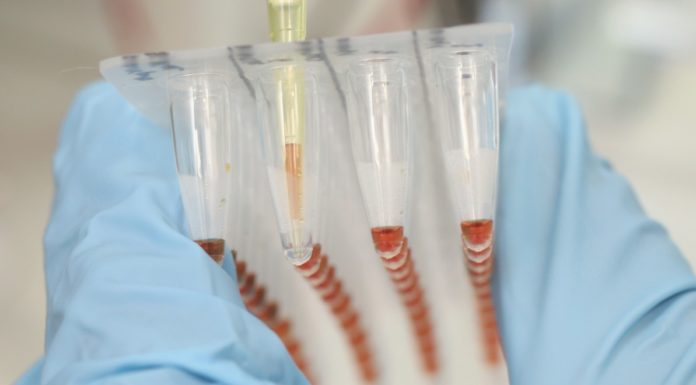
A new experimental Ebola vaccine will start safety testing in humans, a British university says, making it the third such shot to enter human testing.
Oxford University said Tuesday it aims to vaccinate 72 healthy adults with the experimental vaccine, developed by Johnson & Johnson, by the end of January. Some of the subjects will receive a placebo for the purpose of comparison.
Unlike two other experimental vaccines, the J&J vaccine uses two separate injections. The “prime-boost” approach gives one shot to stimulate the immune system and a booster a few weeks later aims to enhance immune response over time. The vaccine does not contain any replicating virus and can’t infect people with the Ebola virus that has killed more than 8,100 people, mainly in Guinea, Sierra Leone and Liberia.
“The main aim is to understand the safety profile of the vaccines,” the study’s leader, Dr. Matthew Snape of the Oxford Vaccine Group, said in a release.
While public health measures remain the best way to bring the outbreak under control, Dr. Snape said, a safe and effective vaccine could start to help later this year. Further tests are planned later this month in the U.S. and soon after in Kenya, Uganda and Tanzania.
Earlier studies showed the prime-boost approach offered non-human primates complete protection against the Kikwit Zaire strain of Ebola that is similar to the virus causing the current outbreak, the university said.
J&J said it has produced enough vaccine to treat more than 400,000 people, which could be used in large-scale clinical trials by April. How many doses are needed depends on how quickly the epidemic is brought under control — currently, experts project anywere between 100,000 and 12 million doses could be needed.
Three Ebola vaccines in the works
The public health crisis triggered by the Ebola outbreak has led to a huge acceleration in the pace of vaccine research. Several Ebola vaccines have been in the works for years, but until this current epidemic in West Africa there wasn’t a real push to bring such a vaccine to market; now, at least three vaccines are in development.
In September, a separate team at the Jenner Institute in Oxford began a trial of an Ebola vaccine developed by GlaxoSmithKline and the U.S. National Institutes of Health. Results of that trial are due shortly and there are plans for the vaccine to be offered to health workers in Ebola affected countries of West Africa later this month.
Merck has recently bought the rights to a third Ebola vaccine being developed by the biotech company NewLink Genetics. That vaccine is being tested in Switzerland. The trial, in Geneva, was halted last month after some volunteers complained of joint pain. It resumed this week, with participants being given a lower dose. Meanwhile, other vaccines are in development in Russia.
“The fact that there are at least three Ebola vaccines entering these early safety trials is good news,” said Dr. Snape. “We are not playing first past the post here. Having multiple vaccines progressing through clinical trials increases the likelihood of vaccine manufacturers having the capacity to meet production demands should mass immunization be required.”
“The more vaccines and more manufacturers there are working on this, the better,” he added.
